The Year 4 Bundle includes all twenty of the Year 4 units as downloadable pdfs. In each of the 20 units, you’ll find four components – history, geography, science, and art. Here’s an overview of what you’ll find in Year 4.
History
Layers of Learning Year 4 covers modern history beginning with the late 1700s, with an emphasis on the United States from its founding. It includes the establishment and structure of the United States government, the Industrial Revolution and growth of the nations, the Civil War, both World Wars, the Cold War Era, the Vietnam War, the Civil Rights Movement, and the technology and terrorism of the modern world. International topics include a history of revolutions around the world and historical overviews of Europe, Africa, Asia, the Middle East, and Latin America.
Geography
The geography of the United States is explored in detail in Layers of Learning Year 4’s geography course. Regional and individual state studies of all 50 states make up the bulk of the coursework. There are also units on maps, economics, landscape regions, U.S. National Parks, domestic landmarks and national symbols, and U.S. territories. The capstone is a home state study.
Science
There are units from each of the four branches of science in Layers of Learning Science Year 4. The physical science component includes heat and temperature, motors and engines, and energy. The earth sciences include the topics of the structure of the earth, plate tectonics, earthquakes, volcanoes, and mountain building. The chemistry section is comprised of applied chemistry topics – the chemistry of air, water, food, farming, medicine, and how industries are utilizing advancing chemistry knowledge. Finally, the biology component is focused on animal studies including food chains, animal groups, instincts, habitats, and conservation.
Arts
Layers of Learning Year 4 Arts corresponds with the historical units and covers modern art, artists, and movements. American and international artists are included. Romantic art, Impressionism, Post-Impressionism, Expressionism, Abstract art, and Modern art are
all showcased. There are also units about photography, architecture, theater and film, and modern music. Because the units dovetail with the historical studies, it also includes specialty lessons on art during wartime, patriotic music, Latin American art, and other modern events.

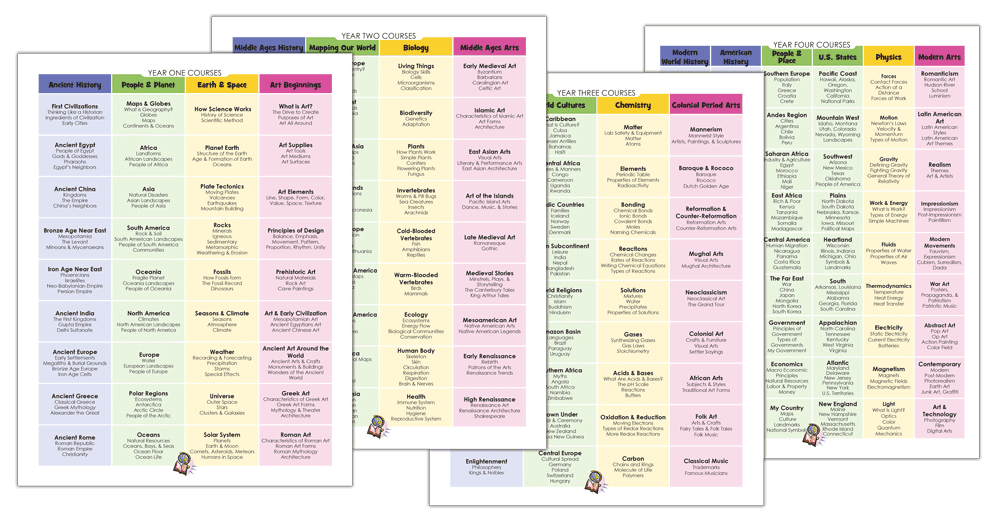
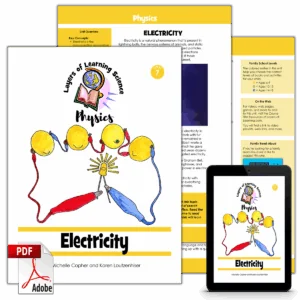
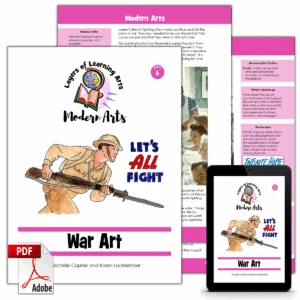
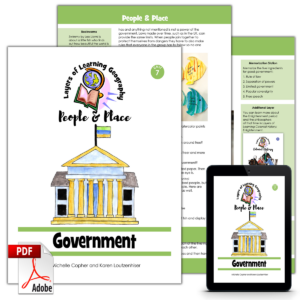
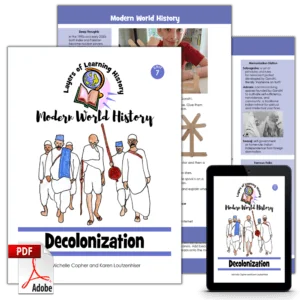
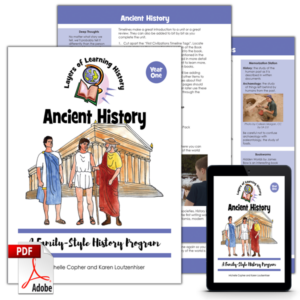
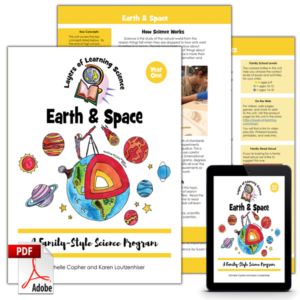
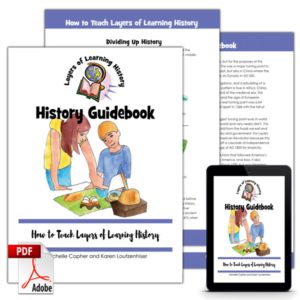
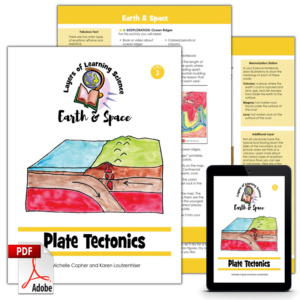
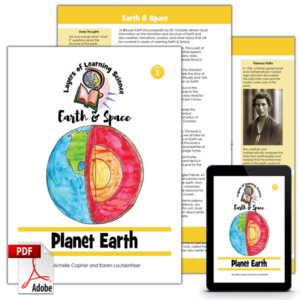
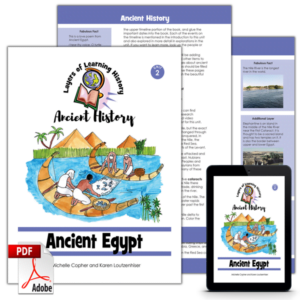
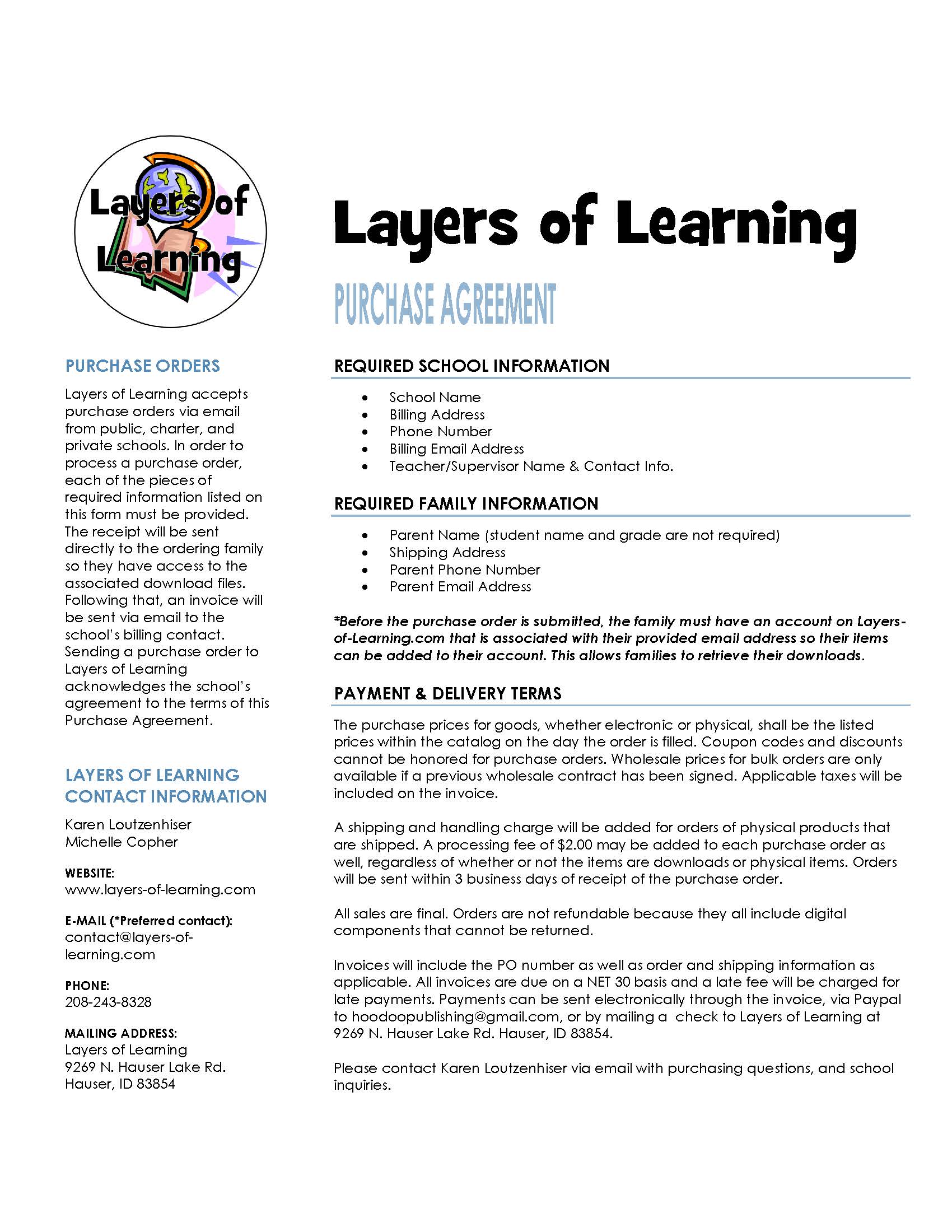
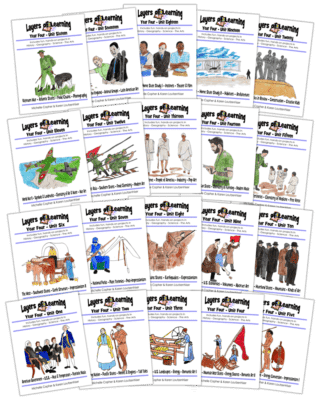
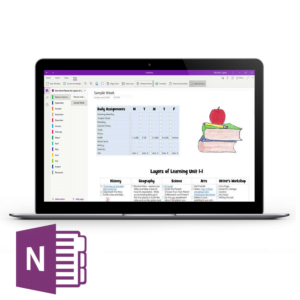
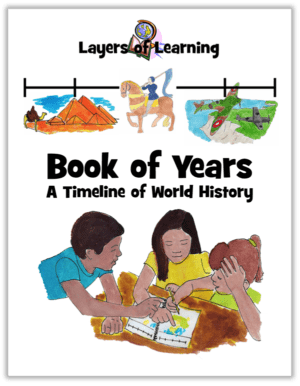
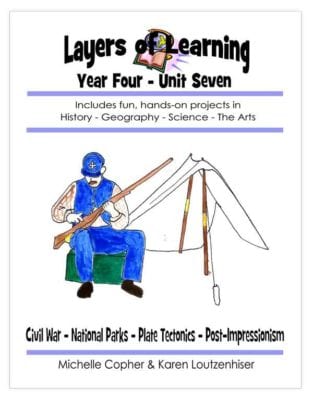
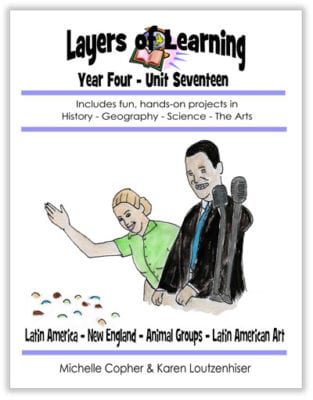

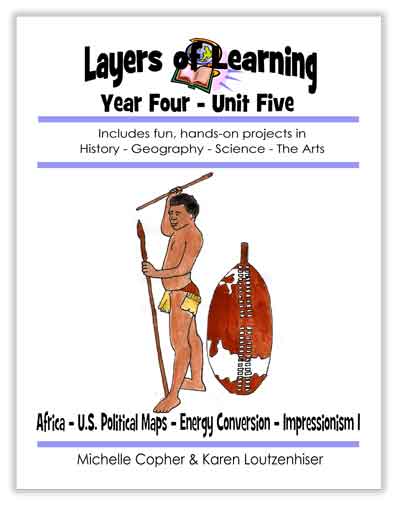
Sherri Graham –
What I love about this curriculum is that it gives you a lot of flexibility in how you use it. If you love reading living books, like we do, you can use the units as a guide for selecting books as you work through the units. If you have kids that love hands-on type activities, well there are a lot of ideas included!
Joy –
We are not new to homeschooling and so have tried a lot of curriculums and I’ve never been overly excited about any. Many have worked but not really stood out for any major reasons. Yours just hits so many major wishes and then just keeps on delivering. I am just a little awe struck. I have to admit I don’t really enjoy teaching much of the learning areas to the kids. It just needs to be done and I try to make it enjoyable. . . this was the first time I was having fun! I found it very interesting and wanted to learn more, LOL. I found myself wanting to do it again! I am so impressed how much it has exceeded expectation. So many Layers ; ) You really did an unusually excellent job creating this.
Leslie Stranathan –
Year 4 of Layers of Learning dives into US states and brings families up to current events in time. We loved completing our four year journey with these units, and it may have been our favorite year of study so far. Each book in the unit covers History, Geography, Science and Art and is designed for family style school. My middle schooler uses our discussions as a jumping off point, while my 2nd grader is just being introduced to the subject. We love all the hands on learning projects, unit printables, and youtube video playlist. Adding rich literature to each unit gives us the ability to have each child learn more at their own level. This curriculum has been the perfect fit for our family for four years now!
Lisa –
Can I print from my phone?
Layers of Learning –
Yes, if you have a PDF reader app on your phone and if your phone has enough memory. These files are large, filled with images and many pages. We recommend keeping your files in a cloud service like Google Docs, Dropbox, or PCloud, for example.